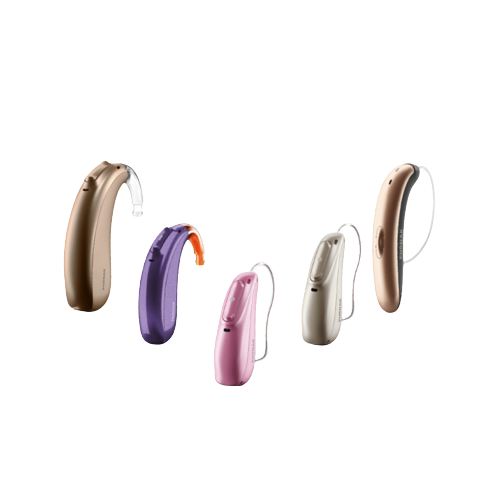How to Maintain Good Hearing Health and an Introduction to Hearing Aids
1/19/20243 دقيقة قراءة


Hearing is an essential sense that allows us to communicate, enjoy music, and be aware of our surroundings. However, many factors can contribute to hearing loss, such as aging, exposure to loud noises, and certain medical conditions. In this article, we will explore ways to maintain good hearing health and introduce the concept of hearing aids.
1. Protect Your Ears
One of the most effective ways to maintain good hearing health is by protecting your ears from loud noises. Prolonged exposure to loud sounds can damage the delicate structures of the inner ear, leading to hearing loss. Here are some tips to protect your ears:
- Use earplugs or earmuffs in noisy environments, such as concerts, construction sites, or when operating loud machinery.
- Keep the volume at a moderate level when listening to music or watching television.
- Avoid inserting objects into your ears, as this can cause damage to the ear canal or eardrum.
2. Practice Good Ear Hygiene
Keeping your ears clean and free from excessive wax buildup is essential for maintaining good hearing. However, it's important to note that the ear has a self-cleaning mechanism, and inserting cotton swabs or other objects into the ear canal can do more harm than good. Here are some tips for practicing good ear hygiene:
- Use a damp cloth to clean the outer part of your ears.
- If you experience excessive earwax buildup, consult a healthcare professional who can safely remove it.
- Avoid using ear candles or other home remedies for earwax removal, as they can cause injury to the ear.
3. Maintain a Healthy Lifestyle
Leading a healthy lifestyle can contribute to overall well-being, including your hearing health. Here are some lifestyle factors to consider:
- Eat a balanced diet rich in nutrients, including omega-3 fatty acids, vitamins A, C, and E, and magnesium. These nutrients are essential for maintaining good hearing health.
- Exercise regularly to improve blood circulation, which is important for the health of the inner ear.
- Avoid smoking and limit alcohol consumption, as these habits can have a negative impact on your hearing.
4. Get Regular Hearing Check-ups
Regular hearing check-ups are crucial for detecting any changes in your hearing health. A qualified audiologist can perform a comprehensive hearing evaluation to assess your hearing abilities and identify any potential issues. Early detection of hearing loss can lead to early intervention and better outcomes. It is recommended to have a hearing check-up at least once every two years, or more frequently if you are at a higher risk of hearing loss.
Introduction to Hearing Aids
Hearing aids are small electronic devices designed to amplify sound and improve the hearing abilities of individuals with hearing loss. They consist of a microphone, amplifier, and speaker, and are typically worn behind or inside the ear. Here are some key points about hearing aids:
- Hearing aids come in various styles and sizes to suit individual preferences and hearing needs. The most common types include behind-the-ear (BTE), in-the-ear (ITE), and completely-in-the-canal (CIC) hearing aids.
- Modern hearing aids are equipped with advanced features such as noise reduction, directional microphones, and feedback cancellation, which help enhance speech clarity and reduce background noise.
- Hearing aids are programmed and customized by a hearing care professional to meet the specific hearing requirements of each individual.
- It may take some time to adjust to wearing hearing aids. Patience and regular follow-up appointments with your hearing care professional are essential for optimal results.
- Hearing aids are not a cure for hearing loss but can significantly improve communication and quality of life for individuals with hearing impairment.
If you suspect you have hearing loss or are interested in exploring hearing aids, it is recommended to consult a qualified hearing care professional. They can assess your hearing abilities, discuss your options, and guide you in choosing the most suitable hearing solution for your needs.
In conclusion, maintaining good hearing health is essential for overall well-being. By protecting your ears, practicing good ear hygiene, leading a healthy lifestyle, and getting regular hearing check-ups, you can take proactive steps to preserve your hearing abilities. Additionally, hearing aids can provide significant support for individuals with hearing loss, improving their communication and quality of life.
